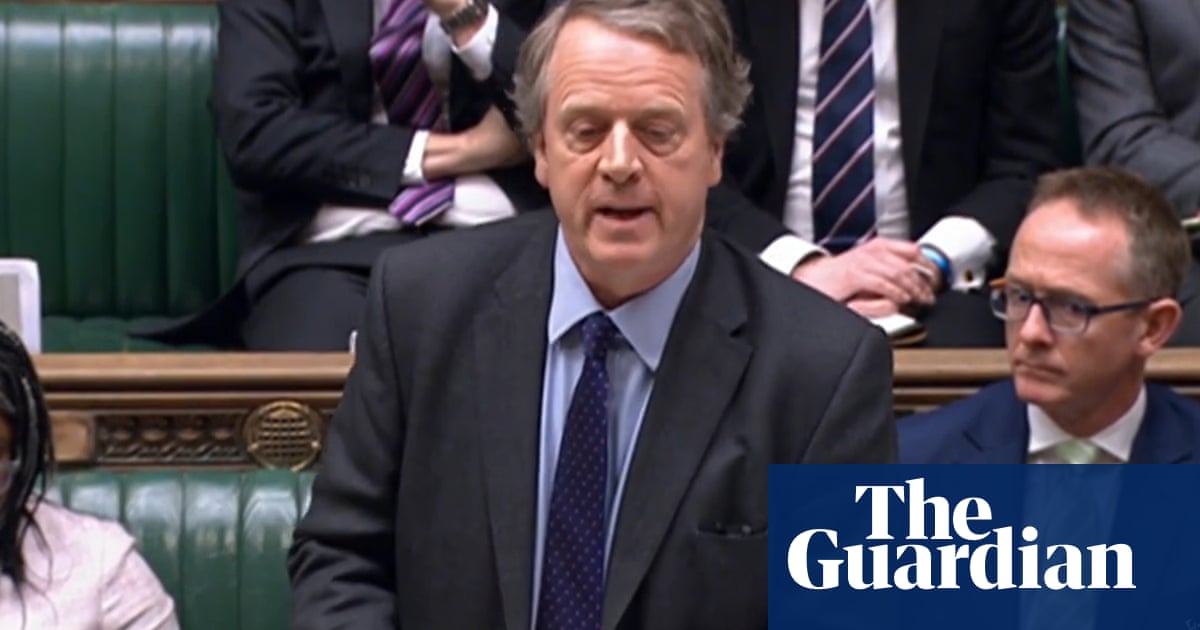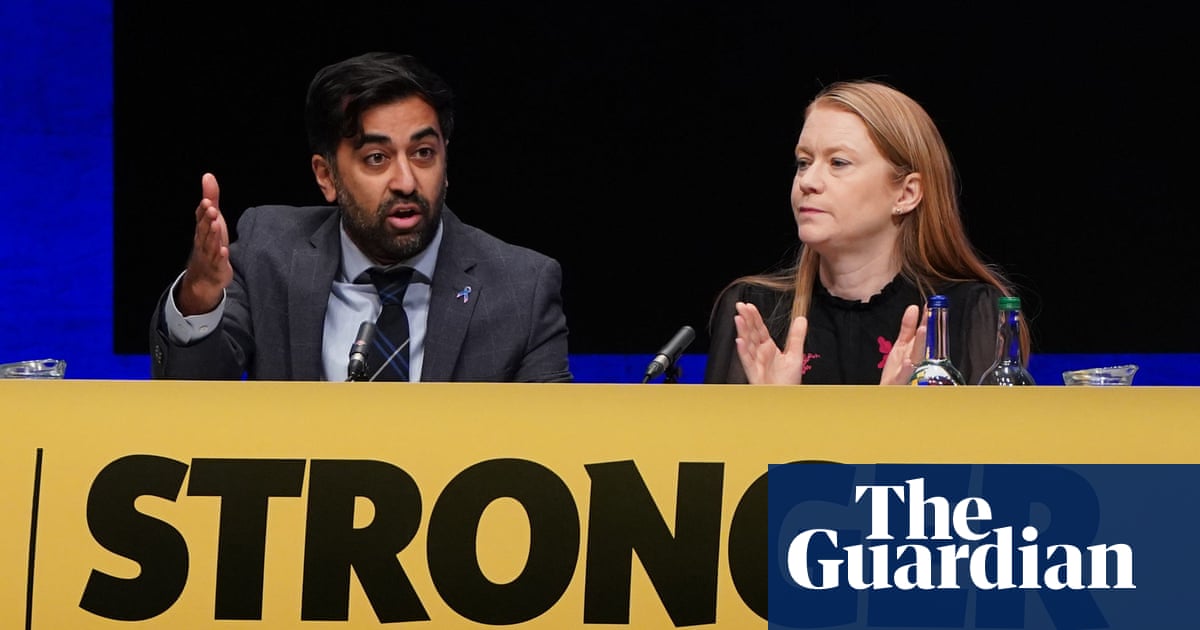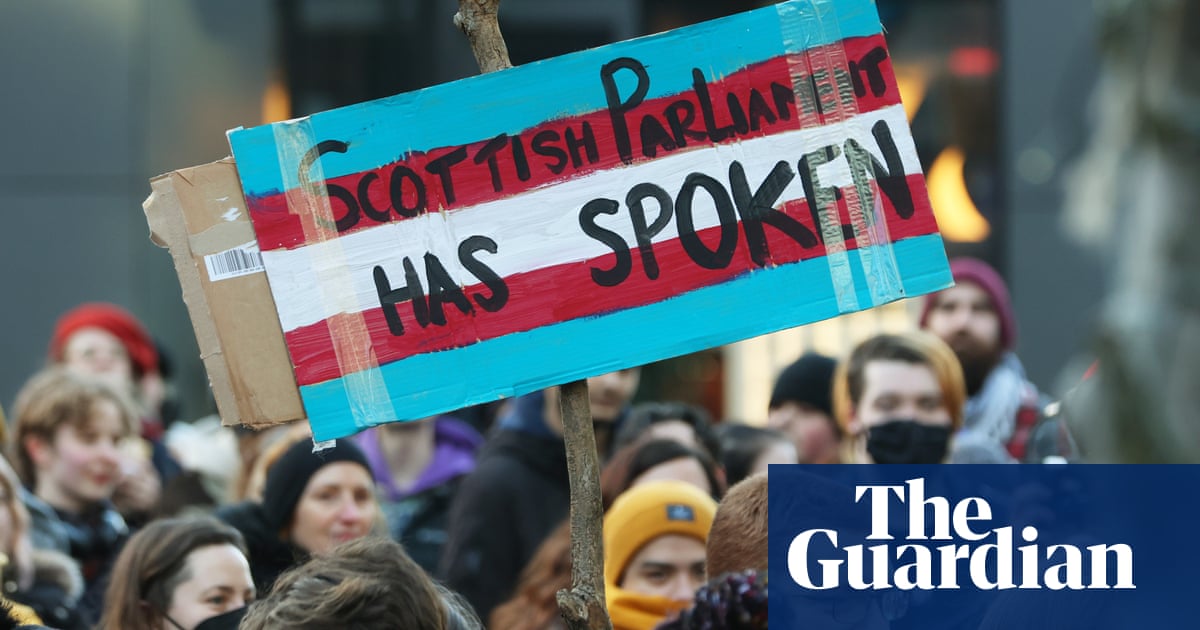
Westminster may use rare power to block Scotland"s gender recognition bill on women"s safety grounds, UK minister says
Alister Jack, the Scottish secretary, has hinted that the UK government might block the gender recognition reform (Scotland) bill passed by MSPs this afternoon. In a statement responding to the vote, he said:
We share the concerns that many people have regarding certain aspects of this bill, and in particular the safety issues for women and children.
We will look closely at that, and also the ramifications for the 2010 Equality Act and other UK wide legislation, in the coming weeks - up to and including a section 35 order stopping the bill going for royal assent if necessary.
Kemi Badenoch, the equalities minister, has suggested the Scottish bill could have a detrimental impact on the rest of the UK because it would not be possible for the legislation to be “fully contained” within Scotland. She set out our concerns in a letter to Nicola Sturgeon, Scotland’s first minister, that was leaked to the Times earlier this month.
Under the Scotland Act that set up the Scottish parliament, the UK government has the power to block a bill passed by the Scottish parliament if it can argue that it would have an “adverse effect” on the operation of the law on a reserved matter (a policy area where Westminster, not Holyrood, is in charge). In this case, the UK government would be arguing that the Scottish legislation would have a harmful effect on equality law.
This power has never been used and, if Rishi Sunak’s government were to invoke it now, that would be seen as highly provocative in Edinburgh.
But during first minister’s questions today Douglas Ross, the Scottish Conservative leader, argued that opinion polls have repeatedly shown that the bill is not popular with Scots, and that claim could embolden Westminster to intervene.
Michael Foran, a law lecturer, has written a good blog on how section 35 orders work at the UK Constitutional Law Association website. Here is is conclusion.
If the secretary of state did issue a s.35 order it would certainly be subject to judicial review. Given that the order must be made within four weeks of the bill’s passing, any challenge will be based on whether there were reasonable grounds for concluding that the advancement of equal opportunities for biological women would be frustrated. Whether the UK government wishes to wade into this political quagmire, given both the gender politics and the devolution politics, is another question entirely.
Afternoon summary
The Scottish government has hailed a “historic day for equality” after MSPs approved plans to make it easier and less intrusive for individuals to legally change their gender, extending the new system of self-identification to 16- and 17-year-olds for the first time. In response, Alister Jack, the Scottish secretary, said the UK government was considering blocking the legislation, using a power under the Scotland Act that has never been used before, on the grounds that it would have a negative impact on equality law in the rest of the UK. (See 5.06pm.)
Rishi Sunak has appointed a former banker and quango head to be his ethics adviser after a six-month delay in filling the post, but will not allow the new incumbent to launch his own investigations into potential wrongdoing.
More than three-quarters of firms say the government’s post-Brexit trade deal with the EU has not helped them to expand their business in the last two years despite promises that Brexit terms were “oven-ready”.
Glenn Campbell from BBC Scotland has details of the MSPs who defied their party colleagues in the vote on the gender recognition reform (Scotland) bill.
Westminster may use rare power to block Scotland"s gender recognition bill on women"s safety grounds, UK minister says
Alister Jack, the Scottish secretary, has hinted that the UK government might block the gender recognition reform (Scotland) bill passed by MSPs this afternoon. In a statement responding to the vote, he said:
We share the concerns that many people have regarding certain aspects of this bill, and in particular the safety issues for women and children.
We will look closely at that, and also the ramifications for the 2010 Equality Act and other UK wide legislation, in the coming weeks - up to and including a section 35 order stopping the bill going for royal assent if necessary.
Kemi Badenoch, the equalities minister, has suggested the Scottish bill could have a detrimental impact on the rest of the UK because it would not be possible for the legislation to be “fully contained” within Scotland. She set out our concerns in a letter to Nicola Sturgeon, Scotland’s first minister, that was leaked to the Times earlier this month.
Under the Scotland Act that set up the Scottish parliament, the UK government has the power to block a bill passed by the Scottish parliament if it can argue that it would have an “adverse effect” on the operation of the law on a reserved matter (a policy area where Westminster, not Holyrood, is in charge). In this case, the UK government would be arguing that the Scottish legislation would have a harmful effect on equality law.
This power has never been used and, if Rishi Sunak’s government were to invoke it now, that would be seen as highly provocative in Edinburgh.
But during first minister’s questions today Douglas Ross, the Scottish Conservative leader, argued that opinion polls have repeatedly shown that the bill is not popular with Scots, and that claim could embolden Westminster to intervene.
Michael Foran, a law lecturer, has written a good blog on how section 35 orders work at the UK Constitutional Law Association website. Here is is conclusion.
If the secretary of state did issue a s.35 order it would certainly be subject to judicial review. Given that the order must be made within four weeks of the bill’s passing, any challenge will be based on whether there were reasonable grounds for concluding that the advancement of equal opportunities for biological women would be frustrated. Whether the UK government wishes to wade into this political quagmire, given both the gender politics and the devolution politics, is another question entirely.
Unite ambulance staff vote to go on strike in Wales in new year
Unite says about 1,000 of its members in the Welsh ambulance service have voted to go on strike over pay in the new year. The strike dates will be announced after Christmas.
Explaining the background to the vote, which was 88% in favour of strike action, the union said:
Unite’s Welsh ambulance service members say such is the decay across the entire health service, that where they once saw 10 patients a day, often they can now deal with only one per shift, spending hours and even whole days at a time sitting outside A&E with patients waiting to be seen.
Sharon Graham, Unite’s general secretary, said:
Unite’s ambulance service members in Wales are striking because they see first-hand every day how the NHS is collapsing. They are dedicated life-saving professionals and are taking this step because they know the NHS itself needs saving.
The Welsh government must put a better offer on the table to help resolve the recruitment and retention crisis that is crippling the service. But it is also incumbent on the Conservative government in Westminster, who hold the ultimate responsibility for the years of destruction inflicted on the NHS, to meet with heath unions and urgently address staffing and pay levels.
And here is a tweet from Ursula von der Leyen, the European Commission president, on her call with Rishi Sunak. (See 3.59pm.) On the Northern Ireland protocol, her language is almost identical to No 10’s.
No 10 hints breakthrough no closer after Sunak and Von der Leyen discuss Northern Ireland protocol
Rishi Sunak has had a telephone call with Ursula von der Leyen, the European Commission president. According to the No 10 readout, they agreed “the UK and the EU would remain steadfast in our military economic and diplomatic support for Ukraine and in countering Russian aggression”.
The two also discussed Northern Ireland, where the UK and the EU are supposed to be negotiating reforms to the Northern Ireland protocol that would make it acceptable to the DUP. But this has been going on for months, and the No 10 readout implied a breakthrough is no closer. It just said:
On the Northern Ireland protocol, they agreed on the importance of working together to agree a solution.
Joe Biden, the US president, is expected to visit Northern Ireland for the 25th anniversary of the Good Friday agreement next year – but only if the protocol issue has been resolved by then. In the i Arj Singh and Paul Waugh say that, if the dispute is still ongoing, Washington plans to send Antony Blinken, the secretary of state, instead.
Shona Robison, the Scottish government’s social justice minister, has issued this statement about the passing of the bill.
This is an historic day for equality in Scotland with the gender recognition reform bill being approved by parliament and by members of all parties.
It simplifies and improves the process for a trans person to obtain a gender recognition certificate – which many currently find intrusive, medicalised and bureaucratic.
The legislation makes no change to the reserved Equality Act 2010 and that principle is enshrined in the bill. As I have made clear, the Scottish government continues to support the provision of single-sex services and the rights of women.
The passing of this bill is a significant step forward in creating a more equal Scotland, where trans people feel valued, included and empowered.
And here is a briefing from the Scottish government on what the bill does.
And here is my colleague Libby Brooks’ story on the vote.
This is from Patrick Harvie, the Scottish Green MSP, welcoming the result.
Scottish parliament passes gender recognition reform bill by 86 votes to 39
The gender recognition reform (Scotland) bill has passed. MSPs voted it through by 86 votes to 39. There were no abstentions.
There is loud applause from the public gallery as the result is read out.
But as the applause starts by die down, there are shouts of “shame on you” from the public gallery good.
The presiding officer, Alison Johnstone, suspends business.
Here is my colleague Libby Brooks’ summary of what the bill willl do.
The suspension of the Scottish parliament is over, and Shona Robison, the cabinet secretary for social justice.
Referring to a comment made by the protester, she says as a woman she knows what a woman is.
She ends by urging MSPs to tackle transphobia. It can happen anyway, including in this Scottish parliament. She refers to a case where a trans woman in the building was referred to as “it”. If MSPs witness transphobia like this, they should call it out, she says.
She ends by quoting Martin Luther King.
We are caught in an inescapable network of mutuality, tied in a single garment of destiny. Whatever affects one directly affects all indirectly.
MSPs are now voting on the bill.
Scottish parliament suspended after protester interrupts final speech before gender recognition vote
Back in the Scottish parliament, Shona Robison, the cabinet secretary for social justice, is winding up the debate on the gender recognition reform (Scotland) bill.
She says a clear international consensus now exists in favour of self-declaration for gender recognition. She says only yesterday Spain passed the first stage of a law that would implement this.
And she also says this was recently acknowledged in a report from the Council of Europe’s commissioner for human rights. Here is an extract from that report.
The UN independent expert on protection against violence and discrimination based on sexual orientation and gender identity has also recommended that legal gender recognition should be based on self-determination, be a simple administrative process, and not require applicants to fulfil abusive requirements, including medical certification.
The commissioner considers that, from a human rights perspective, selfdetermination models for legal gender recognition represent a best practice, and the introduction of such a model in the UK would therefore constitute an important step forward.
The commissioner notes that the number of Council of Europe member states that have eliminated the requirement to provide medical certificates or diagnoses for legal gender recognition has more than doubled since 2018, with nine having adopted such models, and proposals pending in other member states.
To the commissioner’s best knowledge, there is no evidence of these self-determination procedures being misused or leading to issues in relation to the rights of others.
Someone starts heckling Robison from the public gallery. The presiding officer suspends the sitting.
Former banker and quango chief appointed by Rishi Sunak as No 10"s new ethics adviser
Rishi Sunak has finally found someone to serve as Downing Street’s new ethics adviser. The last one, Lord Geidt, resigned in June because he was unhappy with Boris Johnson’s approach to ethical standards and compliance with the ministerial code. Geidt’s predecessor, Sir Alex Allan, also resigned, in November 2020, after Johnson in effect ignored the conclusions of his inquiry into Priti Patel.
The new adviser is Sir Laurie Magnus, a former banker and corporate finance specialist who is chairman of Historic England. Downing Street said, in the news release announcing his appointment, that he would bring “over 40 years’ experience in the financial services sector, with particularly relevant professional experience of audit, compliance and corporate governance”.
Magnus’s official title is independent adviser on ministers’ interests. As well as being available to investigate alleged breaches of the ministerial code when asked by the prime minister, the adviser also oversees the regular publication of the register of ministers’ interests.
The Committee on Standards in Public Life, and others, have said the adviser should have the power to initiate investigations into breaches of the ministerial code without having to get permission from the PM. No 10 has resisted this, and this reportedly was one reason why Sunak found it hard to find someone willing to take up the job.
But when Geidt was in office, he did get Johnson to agree terms of reference which say that, if the adviser wants to carry out an inquiry and the PM blocks it, there is an expectation that a reason for this should be given, unless there are public interest grounds for keeping that confidential. Magnus will operate in line with these terms of reference.
In his letter accepting the job Magnus said:
As chairman of Historic England, I have had the privilege of working closely alongside Ministers, officials and many other public servants. I have seen up close the dedication and expertise required of public service, and the commitment to maintaining high standards that is an essential part of such work. I look forward to drawing and building on this experience in helping to uphold these standards within government.
In line with my terms of reference, I will aim to provide my annual report to you in May 2023. An early priority for me will be to scrutinise the declarations of interests that have been made by ministers appointed under your tenure and to prepare the first list of ministers’ Interests for publication.
John Springford, deputy director of the Centre for European Reform, has posted a thread on Twitter responding to Jacob Rees-Mogg’s criticisms of his study saying UK GDP is 5.5% lower than it would have been without Brexit. (See 10.23am.) It starts here.
And here are three of his posts.
An analysis of the latest A&E wating time (see 11.04am) data by the PA news agency shows that, among those trusts reporting at least 500 ambulance arrivals last week, the highest proportion of patients waiting more than an hour to be handed over was 58% at both University Hospitals Bristol & Weston (381 out of 655 patients) and Gloucestershire Hospitals (345 of 595). PA says:
This was followed by Northern Lincolnshire & Goole at 53% (311 of 590 patients), University Hospitals of Leicester at 52% (446 of 865), University Hospitals of North Midlands at 51% (333 of 651), Shrewsbury & Telford Hospital at 50% (271 of 540) and University Hospitals Dorset also at 50% (409 of 817).
Royal Cornwall Hospitals had 470 arrivals last week, of which 337 – 72% – waited over an hour to be handed to A&E teams.












